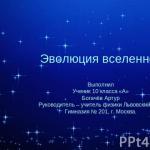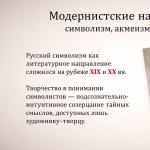The topics of Unified State Examination essays in the Russian language are a rather abstract concept. We can rather talk about problems. Each text offered for analysis to a USE participant contains several problems. Usually there are at least three of them, but there are texts in which up to ten problems can be identified.
The most subjective moment. In fact, the problem may be present in the text, but not contained in the materials for the experts checking the students' work. Most experts in such situations take into account the formulation of the problem.
The difficulty is different: sometimes a student formulates a problem in an ugly way from the point of view of the Russian language, while thinking in the right direction. The result is correct, but difficult to understand content. The expert does not always grasp the connection between the text of the work and the materials according to which he must check. As a result, a correct thought is scored zero.
How to avoid this? There is a list of topics (problems) for Unified State Examination essays in the Russian language, it will be given below. This list contains brief but precise formulations that will definitely be understandable to an expert. Many of them are taken from previous years' examination review materials or from official trial options exams. The problems may vary slightly depending on the source text, but in general the list is exhaustive.
The problem can be formulated in the form of a question or in the genitive case.
There is no difference in terms of assessing essays by experts. But using the first method (questioning) leads to writing a better essay. It makes it possible not to get confused and not to go off topic. Advice from site developers: formulate the problem in the form of a question. We will also formulate a list of topics (problems) in question form.
List of topics for essays on the Unified State Examination in the Russian language
The relationship between man and nature
How do human activities affect nature?
How should we treat nature?
Why is nature important to humans?
Should a person protect nature?
How does nature influence humans?
Why is consumerism towards nature bad?
Does man depend on nature?
Why do people often fail to see the beauty in nature?
How can nature inspire people?
How does the destructive power of nature manifest itself?
Why should you live in harmony with nature?
What is the beauty of nature?
Relationships between humans and animals
Why should a person care about animals?
Why do homeless animals evoke feelings of compassion?
How should people treat their pets?
Do all people love animals?
Why are people so often cruel to animals?
What makes a person kill animals?
Can an animal be useful to a person?
Is a person always more intelligent than an animal?
Family relationships, childhood
How does family influence the formation of a child’s personality?
Is there anything stronger than a mother's love?
How do parents care about their children?
Why are parents strict with their children?
What influences the process of forming a child’s worldview?
Is maternal love always good?
How does upbringing affect a person’s future?
Should children leave their parents?
What kind of atmosphere should there be in the family?
Do family relationships influence a child's character?
Why should parents be honest with their children?
Why do conflicts between “fathers” and “children” happen?
What do childhood memories mean to a person?
Can childhood always be called the happiest time?
The beauty and richness of the Russian language
What does a person’s native language mean?
Why do you need to protect the Russian language?
What does an irresponsible attitude towards one’s native language lead to?
Why do young people neglect the rules of the Russian language?
What is the richness of the Russian language?
School, teachers, books
Why is it important for a person to get a good education?
How does the school participate in shaping a child’s personality?
Why are school lessons important?
Why should you remember your teachers?
Can every teacher be called good?
What should a real teacher be like?
Why should a person strive for knowledge?
What's wrong with not wanting to learn?
What consequences does the work of an incompetent teacher have?
How do books influence a person's worldview?
What place should reading have in a person's life?
Inner world, moral qualities of a person
What can a person's appearance say?
Is a person beautiful on the outside always beautiful on the inside?
In what situations does a person’s character emerge?
What internal qualities of a person can be considered correct?
What is a truly rich inner world like?
Why do people commit immoral acts?
Can anything justify betrayal?
Why do people take the path of spiritual degradation?
How does cowardice manifest itself?
What kind of person can be called callous, heartless?
What does human cruelty lead to?
Why do intrapersonal conflicts occur?
Can a moral person change his principles?
Friendship
Can real friendship ever end?
Why do quarrels happen between friends?
Why does friendship not tolerate betrayal?
What kind of person can be called a true friend?
Can friends be rivals?
Love
What is true love?
How should you treat the person you love?
Is love always happy?
What can a person do in the name of love?
Why is unrequited love dangerous?
Is it possible to forgive everything to a loved one?
Social problems
How should we treat the poor?
Why should you help the homeless?
Can you always trust the authorities?
How does the problem of veneration manifest itself?
Why can the rich control the destinies of the poor?
Why is crime rampant?
Is there any way to justify theft?
What can make a person a drunkard?
Are the poor always to blame for their financial situation?
Upbringing
What kind of person can be called well-mannered?
Will a well-mannered person be rude or rude?
Why should a person be responsive?
Who gives a person education?
Why is it important to respect others?
Should a person be polite?
Art in human life
Is it always talented person do they notice?
What does art give to a person?
How does music affect a person?
Is it possible to express through art what cannot be expressed in words?
What did music mean to people? war time?
Do brilliant people always live happily?
Why do people love art?
How does art help people?
War time
Why was heroism common in wartime?
What are people who love their Motherland ready for?
What kind of person can be called a patriot?
How does false patriotism manifest itself?
Does it make sense to treat the enemy humanely?
Why is war a grief for every family?
Why should we remember war heroes?
How does humanity preserve the memory of the Great Patriotic War?
The list of problems can be expanded. New problems will be added to the general list, stay tuned.
Single State exam, the successful completion of which allows yesterday’s schoolchildren to become students prestigious universities- the task is quite difficult. Since the exam requires increased attention and sufficient quantity necessary knowledge, teachers recommend that students prepare well before taking it.
Among the multiple Unified State Exam tests- an essay on the Russian language, the minimum length of which should be 150 words. With fewer words, as practice has shown, it is quite difficult to fully reveal the existing topic.
Let's consider the process of creating an essay plan that will help express the essence of the essay and fully substantiate the point of view on the problem. As with most works of this type, it would be useful to add an introductory and concluding part to the structure of the text. Most educators recommend a plan next type For writing an essay for the Unified State Exam:
- The essence of the topic.
- Comments on it.
- Author's opinion.
- The student's personal view of the problem.
- Justify your own point of view (give at least 2 arguments).
Let's give examples of essays for the Unified State Exam, which will help you navigate and write a decent presentation on the chosen topic.
Example 1
Mikhailov’s entire text is permeated with the idea of the phenomenon genius man. The author emphasizes the inability of science to fully study and explain the nature of genius and find its source. Some thinkers believe that the currently known term “indigo children” can be justified as the birth of a child from the union of a human and an alien being, while other scientists consider the emergence of such a gifted category of children to be the result of genetic mutations.
As proof Mikhailov gives real story about an 8 year old child. The girl may soon become disabled, but at the same time demonstrates amazing abilities for drawing and learning languages. One might assume that such a case is a phenomenon, but in fact the reason for the girl’s talent lies in the parents’ desire to help realize their daughter’s talents.
Mikhailov expresses the opinion that only with the help of hard work and the help of relatives and close people can one demonstrate the inclinations of genius.
As argument I would like to give as an example a real story from the life of the composer Mozart. His talented, but lacking in genius, rival Salieri was jealous of Mozart, but was not going to sit for hours over notes, hoping that chance would help him defeat the “enemy.” Mozart was used to working hard, and it was this amazing work ethic that helped him become what we know as a genius in his field.
The problem of the text echoes real life modern little geniuses, of whom more and more are born every year. Each of them could establish themselves in their chosen field and fully express themselves, but this is often hindered by a lack of parental attention. Teachers, as well as peers, sometimes simply mock indigo children, who are very different from everyone else. Therefore, anyone who encounters such brilliant children can be advised to contribute to the process of the birth of real genius from an emerging talent.
Analyzing the work of N. Mikhailov, I came to think about the primary role of the people surrounding a brilliant child in the formation of his genius. I would like to urge everyone not to allow the sprout of the outstanding abilities of an indigo child to be trampled into the dirt.
Example 2
Can war destroy everything highly moral in a person? Or a particle of the bestial in each of us sooner or later reveals itself under certain circumstances, displacing human qualities? Or maybe it’s even in our nature to love the enemy?
Tendryakov in his work cites the story of a fire in a German wartime hospital. The ongoing brutal war does not affect people's expression of deep compassion and conscience. The author says that the tragic incident that happened before the eyes of many touched the heart of everyone, no one was left out. V. Tendryakov in his text gives examples of the amazing empathy of enemies with each other and their help to comrades in difficult times.
My agreement with the author’s text leads to memories of V. Zakrutkin’s work “Mother of Man” about the events of the Second World War and an excerpt from the novel “War and Peace”. In the first case, the heroine of the work, despite the burning desire for revenge, forgives her enemy, who could be the murderer of her own son. Tolstoy’s novel talks about untapped “human reserves”: it describes the peaceful communication of Russian and French soldiers and their kind attitude towards each other, which, nevertheless, does not in any way save them from continuing hostilities.
Tendryakov’s text, which was offered to me for analysis, helped me come to the idea that the human always remains inside each of us and is only waiting for the right time to manifest itself, despite the drama of life situations.
The Unified State Examination in Russian consists of two parts and 25 tasks.
First part represents 24 tasks. They can be test-type, with a choice of one or more answers, open-ended (fill in the blank yourself).
The answer to the tasks of Part 1 is given by the corresponding entry in the form of a number (number) or a word (several words), a sequence of numbers (numbers) written without spaces, commas and other additional characters.
Part 1 tasks test graduates’ mastery of educational material both basic and high levels difficulties (tasks 7, 23–24).
Second part - consists of one task - 25. This task involves writing an essay based on the read and analyzed text.
Part 2 task (task 25 - essay) can be completed by the examinee at any level of difficulty (basic, advanced, high).
The work is given 210 minutes - 3.5 hours.
Distribution of tasks into parts exam paper
| Parts of the work | Number of tasks | Maximum primary score | Type of tasks |
| 1 part | 24 | 33 | Short answer |
| part 2 | 1 | 24 | Detailed response |
| Total | 25 | 57 |
Unpointing for tasks
Below I will give the “cost” of each task performed.
For the correct completion of each task first part (except for tasks 1, 7, 15 and 24) the examinee receives 1 point. For an incorrect answer or lack thereof, 0 points are given.
For completing tasks 1 and 15, you can score from 0 to 2 points.
The answer that contains all the numbers from the standard and no other numbers is considered correct.
For completing task 7, you can score from 0 to 5 points.
For each correctly indicated digit corresponding to a number from the list, the examinee receives 1 point (5 points: no errors; 4 points: one error was made; 3 points: two errors were made; 2 points: two digits were indicated correctly; 1 point: correctly indicated only one digit; 0 points: completely incorrect answer, i.e. incorrect sequence of numbers or lack thereof.
For completing task 24, you can score from 0 to 4 points. The answer that contains all the numbers from the standard and no other numbers is considered correct.
The maximum number of points that an examinee can receive if he or she completes the task correctly second part , is 24 points.
For correct completion of all tasks of the examination paper, you can receive the maximum 57 primary points .
We can talk endlessly about the problems that can be raised in the texts of the Russian language exam. No, the Unified State Exam is not that difficult. It’s just that everything about writing is always quite abstract and contradictory. And problems sometimes open up boundaries for imagination. It is human nature to perceive material due to his education, in accordance with the level of intelligence and upbringing. Therefore, where one sees nothing, another may find a problem.
Experts checking the Russian language exam have materials based on which scores are assigned. The criteria regarding literacy are transparent: the rules are the rules, there are no controversial issues here. Things are worse with the list of problems: the inspectors are provided with approximate range of problems. It usually presents formulations of the main problems. Usually there are 3-4 of them. But experience shows that in most texts there are much more problems.
Confusion ensues. “What should I do if my problem is not on the list?” - this is the question that worries almost half of the graduates who have just passed the exam. And there is reason to worry, because everything that happens next depends on the subjective opinion of the expert. The inspector will see source text or will not see the problem you highlighted - that is the question. It is possible, but not to “get” into the list of main problems. Therefore, it is better to rely on generally accepted formulations from the list of problems for composing the Unified State Examination.
Types of problems in writing the Unified State Exam format

You can find it in the corresponding section of the site. The purpose of this page is to help you remember common wordings. To make it easier to work with problems, you need to break them down into blocks. It will be great if you take the names of the blocks from this site and enter the problems from the list into each one yourself.
Philosophical problems
They address issues of the development of nature, society and humans. Often we're talking about about the meaning of life, the interaction of man and culture, the historical path of society. This group of problems seems difficult to many due to the fact that discussing the above issues requires preparation and a certain type of thinking.
Social problems
Associated with the functioning of society. Often these are topical issues that are still relevant today: respect for human rights, social progress, strengthening the role of science in society. It’s easy to write about the problems of this group, because each of us interacts with social sphere life of society.
Political problems
They concern power within the state and political parties. May be related to issues of war and peace, the choice of the path of reform or revolution. They change under the influence of time, adapting to the demands of society: for example, today the problems of terrorism and nationalism are actively discussed.
Moral issues
They are a product of the development of the spiritual sphere of society. Moral problems are associated with assessing situations and actions from a moral point of view (good and evil). The true beauty of a person is discussed, there is talk about the true moral qualities of a person. This also includes problems related to generational conflict.
Ecological problems
Texts dealing with these issues talk about the beauty and richness of nature. The relationship and interdependence of man and nature, the emergence of environmental crises, and the interaction of nature and human culture are discussed.




